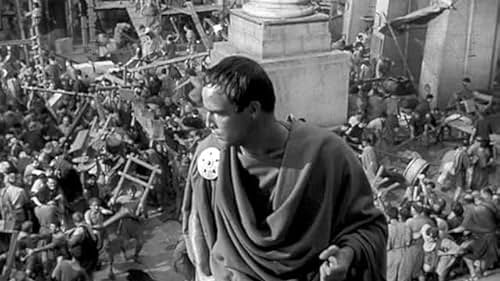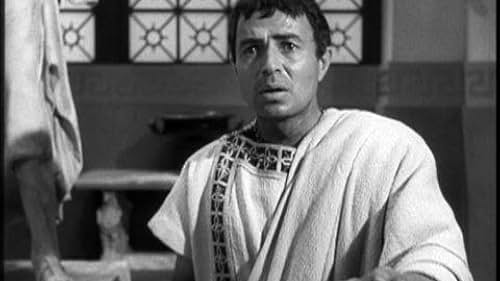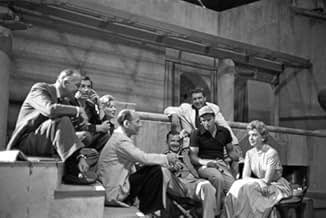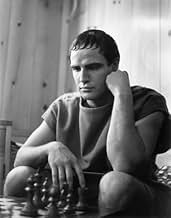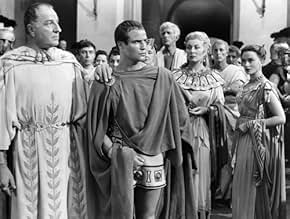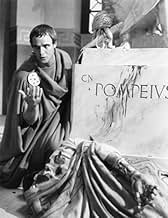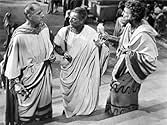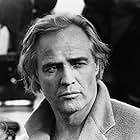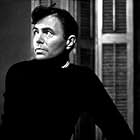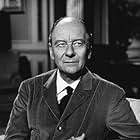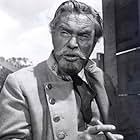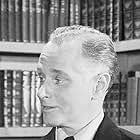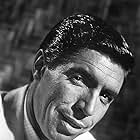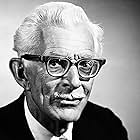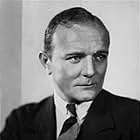The growing ambition of Julius Caesar is a source of major concern to his close friend Brutus. Cassius persuades him to participate in his plot to assassinate Caesar but they have both sorel... Read allThe growing ambition of Julius Caesar is a source of major concern to his close friend Brutus. Cassius persuades him to participate in his plot to assassinate Caesar but they have both sorely underestimated Mark Antony.The growing ambition of Julius Caesar is a source of major concern to his close friend Brutus. Cassius persuades him to participate in his plot to assassinate Caesar but they have both sorely underestimated Mark Antony.
- Won 1 Oscar
- 7 wins & 7 nominations total
- Servant to Antony
- (as Bill Phipps)
- Director
- Writers
- All cast & crew
- Production, box office & more at IMDbPro
Storyline
Did you know
- TriviaThis movie was shot in just 35 days, using some of the sets from Quo Vadis (1951), which were dismantled, flown from Rome to Hollywood, and then reassembled for this film. Producer John Houseman confirmed that it was never intended that the movie be shot in color, as he and director Joseph L. Mankiewicz wanted it to have the urgency of a newsreel, not to look like a costume epic.
- GoofsA well-known bust of Emperor Hadrian is visible during the early dialog between Cassius and Brutus, and, later, at Brutus's villa. Hadrian wouldn't be Emperor for more than 120 years.
- Quotes
Marc Antony: You gentle Romans. Gentle Romans, hear me. Friends, Romans, countrymen, lend me your ears! I come to *bury* Caesar, not to praise him. The evil that men do lives after them, The good is oft interred with their bones; So let it be with Caesar.
- Alternate versionsAlso shown in a computer colorized version.
- ConnectionsFeatured in Precious Images (1986)
Julius Caesar's characters are not as complex as those in Hamlet and their motives are not as well defined either. After watching the movie twice, reading the play and watching the film again, over two days, I still could not find clarity in Cassius' agenda. He certainly was incendiary in persuading the Senators to persecute Caesar, and he also paltered with Brutus by turning a blind eye to bribery and possibly having itching palm himself. In a play so short, his ambitions could not be well articulated, and I don't criticize Shakespeare here, since one needs a 1400 page epic like Leo Tolstoy's War and Peace to fully flesh out characters (even then Tolstoy's characters kept evolving with changing times). But we are better told about Brutus, who seems to be too moralistic to adopt practicality that Cassius possessed. When he plunged the dagger into Caesar, his soul was not at rest but rather disquiet at the failure of trust on his part. "Et tu Brute? Then fall Caesar" utters Caesar before succumbing to the stab wounds, and these words do not affect Brutus immediately because the deed is done and he has to face the music, but slowly he realizes that he too face doom in the near future. Mark Antony does not come into prominence till Caesar's death and has a game changing speech that shall put him on the throne and cause the Senators to scurry away. Being one of Caesar's most trusted confidantes, Antony must've certainly inherited some qualities from him, and that may be how he sways an agitated crowd against Brutus by targeting their emotions. The women, namely Calpurnia and Portia, act as possible negators of Caesar's fall, and their main purpose it to bring some tension to the play as they unknowingly try to prevent the chain of events. The soothsayer and Artemidorus are also for the same purpose.
Coming to the movie at last, I commend Joseph L. Mankiewicz for (i) giving much freedom to the actors who were well versed with Shakespeare (ii) leaving out redundant portion such as Antony telling a how he would try to extract revenge on Brutus and (iii) keeping the production minimalistic unlike some gaudy historical works (not of Shakespeare) such as 1963's blinding Cleopatra or 1979's execrable Caligula. Acting-wise, I was never certain about which of the three performances – Brando's, Mason's and Gielgud's – was the best. On my first viewing, I was unimpressed and slightly irritated by Brando, but I realized it took time to get used to sharp tonal quality. Mason was thoroughly consistent in making Brutus a heroic character, and I note here that Brutus' momentary disgust, shock and shame at witnessing Caesar's attack is the only time I felt a chill down my spine looking at the rush of emotions on Mason's face. Gielgud has a mellifluous voice and his enunciation was noteworthy. By the third viewing, Brando grew on me and I began realizing the potential of his performance. He role is risky since the monologue he utters is of prime importance, and I admired the rhetoric that he put in his speech to make the same lines "But Caesar was ambitious. And Brutus is an honorable man" sound assertive, affirmative, dispassionate, questionable, accusatory and then sarcastic each time uttered. Even when he points out the stab wounds casted by the Senators, his tearing voice sounds like tearing of flesh by the stab wounds inflicted. I yet felt he was not the leading man, but a great supporting character. Gielgud now seemed slightly theatrical and mechanical at times yet very competent. Therefore, I thought Mason was the leading man worthy of an Oscar nomination for his touching portrayal of the misfortunate Brutus. Edmond O'Brien was good, and Deborah Kerr did her job, though she could have created more personality to her character- who is supposedly a pale, neglected and distraught wife who constantly endeavors to bear her husband's doubts that he keeps hiding from her. The camp, goof and schlock comes with Louis Calhern and mainly, Greer Garson, who did a magnificent job in Mrs. Miniver but sounds over-the-top and mawkish. Fortunately, she still can't beat Elizabeth Taylor's Cleopatra who gave an orgasm-like reaction at Caesar's death and had murdered every emotion you could think of. The supporting cast from the beginning to the end was very complimentary for the movie.
All in all, a fine transition of a Shakespearean play to the big screen.
My Rating: 8.3 out of 10
- sashank_kini-1
- May 18, 2012
- Permalink
- How long is Julius Caesar?Powered by Alexa
Details
- Release date
- Country of origin
- Language
- Also known as
- Jules César
- Filming locations
- Production company
- See more company credits at IMDbPro
Box office
- Budget
- $2,070,000 (estimated)
- Gross worldwide
- $10,831
- Runtime2 hours
- Color
- Sound mix
- Mono(Western Electric Sound System, original release)
- Aspect ratio
- 1.37 : 1
Contribute to this page


